Kate Baggaley
Kate Baggaley was the fall 2014/spring 2015 intern at Science News.

Trustworthy journalism comes at a price.
Scientists and journalists share a core belief in questioning, observing and verifying to reach the truth. Science News reports on crucial research and discovery across science disciplines. We need your financial support to make it happen – every contribution makes a difference.
All Stories by Kate Baggaley
-
 Health & Medicine
Health & MedicineSigns of sleep debt found in the blood
When rats and people skimp on sleep, fats and acids involved in metabolism dwindle.
-
 Animals
Animals‘The Cultural Lives of Whales and Dolphins’ offers window into cetacean societies
Dolphins and whales pass cultural knowledge to one another, the authors of a new book argue.
-
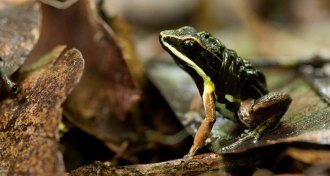 Animals
AnimalsRainforest frogs flourish with artificial homes
A rainforest frog population grew by about 50 percent when scientists built pools for tadpoles that mimic puddles made by other animals.
-
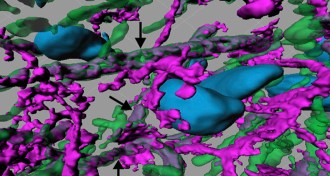 Neuroscience
NeuroscienceShots of brain cells restore learning, memory in rats
Scientists healed damage caused to rats’ brains from radiation by injecting cells that replenish the insulation on neurons.
-
 Genetics
GeneticsPregnancy in mammals evolved with help from roving DNA
DNA that “jumped” around the genome helped early mammals shift from laying eggs to giving birth to live young.
-
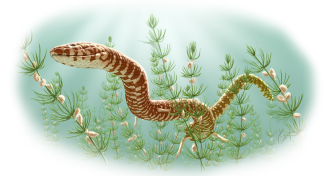 Paleontology
PaleontologySnakes crawled among Jurassic dinosaurs, new timeline says
Earliest snake fossils provide evidence snakes evolved their flexible skulls before their long, limbless bodies.
-
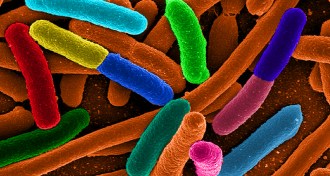 Genetics
GeneticsScientists find new way to corral genetically engineered bacteria
Engineering E. coli to depend on human-made molecules may keep genetically modified bacteria from escaping into nature.
-
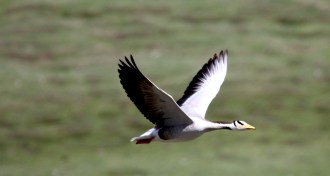 Animals
AnimalsMountain migration is a roller coaster for bar-headed geese
Bar-headed geese rise and fall to match terrain below them when migrating over the Himalayas.
-
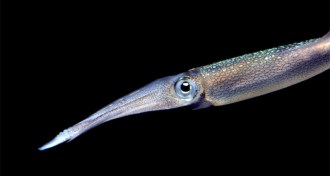 Animals
AnimalsSquids edit genetic directions extensively
In squids, RNA editing means that DNA often does not get the final say in which proteins are created.
-
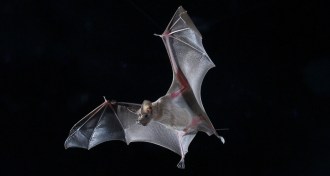 Animals
Animals‘Bag of chips effect’ helps bats find a meal
Bats get a clue to where dinner is by listening to peers attacking prey.
-
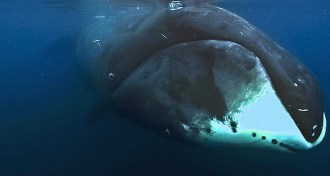 Animals
AnimalsBowhead whales may unlock the secrets to a long, healthy life
Analyzing the genome of the bowhead whale may help scientists understand how the animals live for more than 200 years.
-
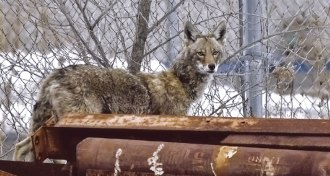 Ecosystems
EcosystemsCities are brimming with wildlife worth studying
Urban ecologists are getting a handle on the varieties of wildlife — including fungi, ants, bats and coyotes — that share sidewalks, parks and alleyways with a city’s human residents.